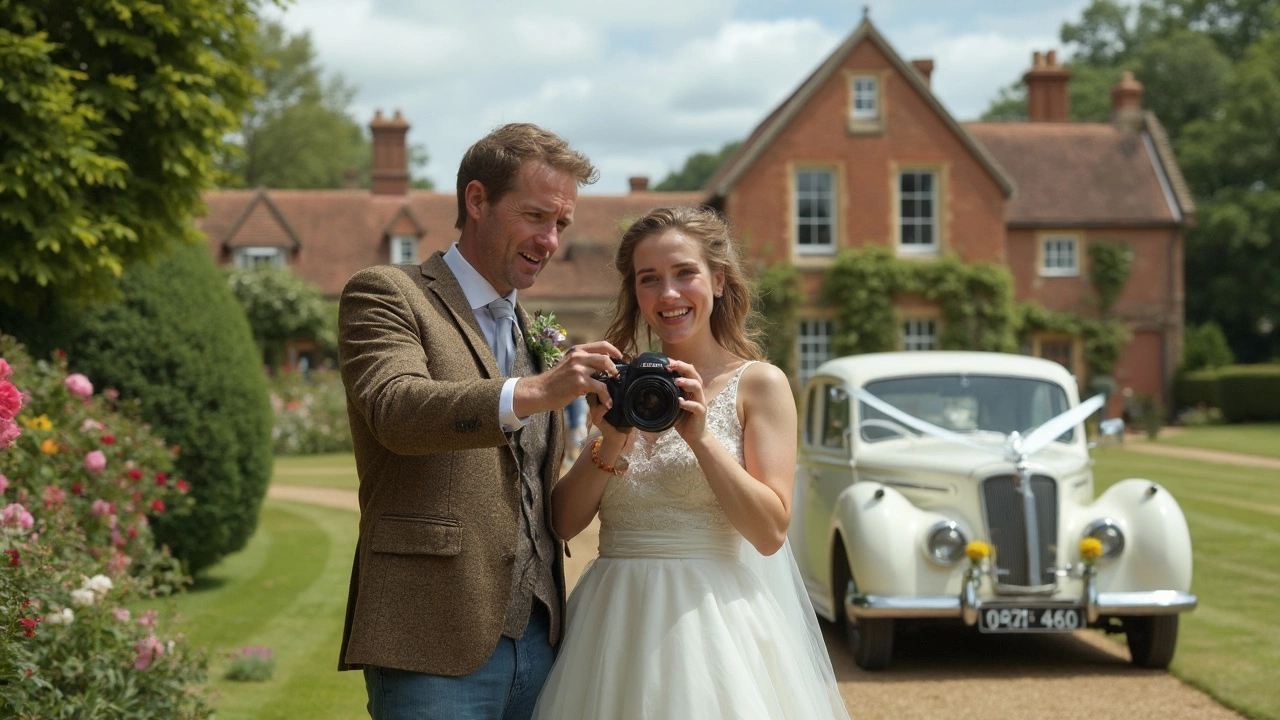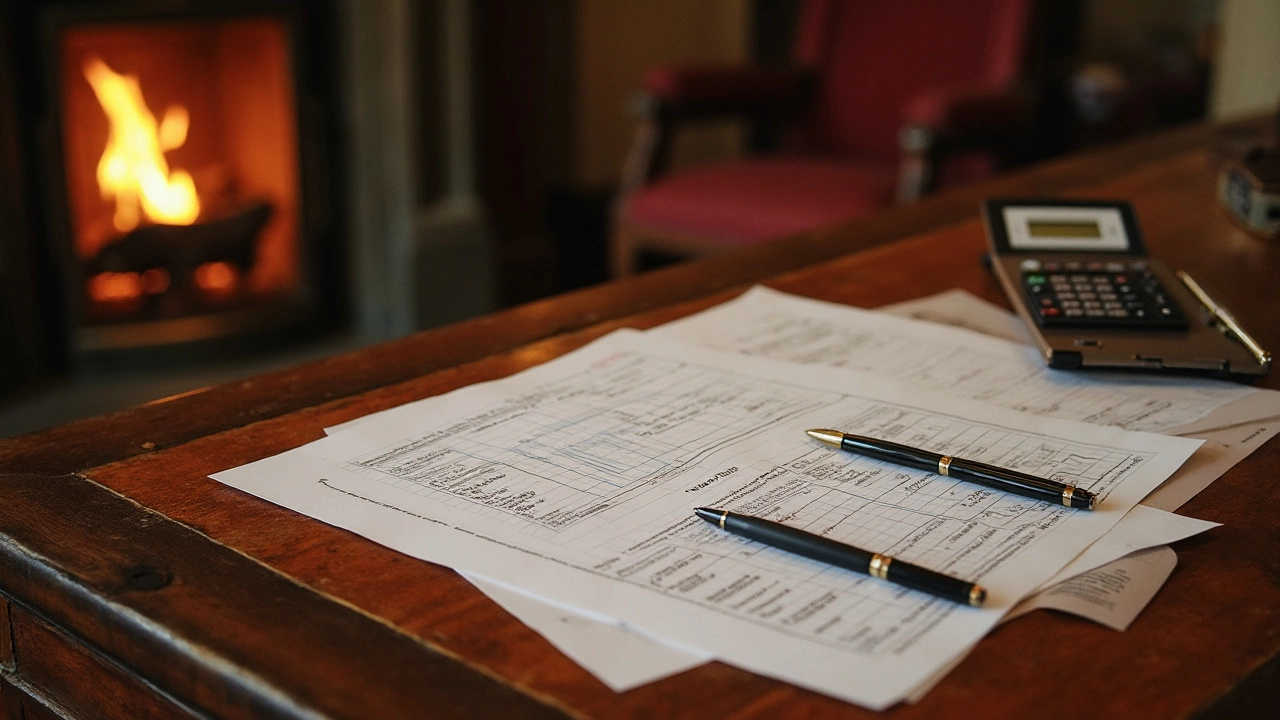Weddings are a whirlwind of details, and if you've ever pondered when to pay your photographer, you're not alone. It's a common question, and getting your timing right can save a lot of stress. Let's cut to the chase: most wedding photographers ask for a booking deposit or retainer. This upfront payment is usually made as soon as you've chosen your photographer. It's how they save your date on their calendar and begin organizing your special day.
But that's not the whole picture. Once the deposit is settled, you'll likely follow a payment schedule laid out in your contract. Why a contract? It keeps everyone on the same page, covering everything from how many hours they'll be snapping photos to when those stunning shots will be delivered.
- Booking and Deposits
- Payment Schedule Insights
- Understanding Contracts
- Handling Cancellations
- Budgeting for Photography
Booking and Deposits
Alright, let’s talk about booking your wedding photographer and what goes into the deposit. It's pretty standard for photographers to ask for a booking deposit—usually somewhere between 20% and 50% of the overall package cost. This deposit serves as a retainer fee and helps secure your date in their busy schedule.
Why a deposit, you ask? Wedding photographers often book dates well in advance, sometimes up to a year or more. That small chunk of money also assures the photographer you're committed. It's not easy to fill a spot once it's taken because these pros need to plan for your big day just as much as you do.
Timing the Deposit
Once you've chosen and interviewed your photographer, and you've decided they're the perfect match for your wedding style, they'll typically ask for the deposit at the time of contract signing. At this stage, be sure to review the photographer's cancellation policy thoroughly.
What to Check in the Agreement
When signing off on the deposit, make sure you know what’s covered in the deal. Is an engagement shoot included? How many hours of coverage do they provide? Can you add extra services later without any hassle? Understanding these elements beforehand can ease your mind.
A Simple Checklist
- Verify the deposit amount and make sure it fits your budget.
- Confirm what the deposit guarantees—date, time, services.
- Check if the deposit is refundable or applicable in case of rescheduling.
- Inspect all the terms in the photographer's contract before handing over any cash.
Paying that initial amount is the first financial commitment you’ll make to your wedding photographer, and it sets the stage for a smooth experience moving forward.
Payment Schedule Insights
Diving into the nitty-gritty of payment schedules for wedding photographers can feel like opening Pandora’s box, but it’s simpler than you think. Typically, these schedules are broken down into a few key phases beyond the initial deposit. Knowing what to expect and when can help keep your budget in check.
The standard practice in the industry is to split payments into three parts. After the initial booking deposit, which secures your date, comes the second payment. This is often due midway between booking and the big day. Think of it as a check-in, ensuring everything is on track. The final balance is usually payable prior to or on the day of the wedding. Each photographer might tweak this setup slightly, but the overall structure tends to stay the same.
"A clear and well-structured payment schedule not only helps the client but also assures the photographer of a commitment to the project," says Jane Doe, a seasoned wedding photographer with over a decade of experience.
It’s a good idea to double-check the contract for any additional details about what's covered in these payments. Some photographers may include additional services like editing or a wedding album in the overall price, while others might offer them as add-ons at additional cost.
If you’re budgeting, think about any 'hidden' costs that might pop up. Extra hours on the wedding day, additional albums, or even travel fees can sneak in if you're not prepared. It’s also worth asking about any potential refunds. Some photographers offer partial refunds if cancellations occur ahead of a specific cutoff date.
Payment Methods
Most photographers offer flexible payment options, but cash, checks, and credit cards are staples. With digital transactions becoming the norm, services like PayPal or Venmo are also frequently accepted. It’s wise to confirm your preferred method with them early on.
Remember, open communication with your photographer is key. Discuss any uncertainties well ahead of time to avoid last-minute stresses.

Understanding Contracts
So you've found the perfect wedding photographer, and it's time to seal the deal. The contract is your go-to guide for everything related to your photography service. Let's decipher what to expect.
Key Details to Look For
The contract should clearly spell out the services provided. Look for details like the date, time, and venue of your wedding, plus the specific hours your photographer will cover. They'll probably also include a plan for what happens if something goes south, like an emergency or cancellation.
Payment Schedule
A well-laid contract will outline a payment schedule. This might include a booking deposit (often ranging from 25% to 50% of the total fee). Final payment is typically due just before the wedding or on the day itself. Having this outlined gives you peace of mind and keeps everything transparent.
Deliverables
Know what you're getting! The contract should list what you're paying for — like the number of photos, any albums, and the format of delivery. Will it be a USB drive, digital download, or maybe even prints? Make sure this is clear.
What's Your Backup Plan?
Life is unpredictable. Contracts often cover what happens if the photographer can't make it. They might have backup photographers or offer a refund. It's good to know what safety nets are in place.
Additional Tips
- Read carefully: Go through the contract slowly, and don’t hesitate to ask questions.
- Negotiate if needed: If there's something you're unsure about, discuss it before signing.
- Seek exclusivity: Make sure they’re not booking multiple weddings on your day unless agreed upon.
These agreements may feel overwhelming, but they're there to protect both parties. And the extra effort now means fewer surprises later!
Handling Cancellations
Life is unpredictable, and sometimes weddings get postponed or plans change. Knowing how to handle cancellations with your wedding photographer can save you a headache down the road.
Read the Contract
The first thing to do is check your contract. Most photographers will have a cancellation policy outlined. This policy typically covers how much refundable money you'll get, if any. Some contracts allow for partial refunds, while others might keep the deposit since they've blocked off that date for you. Understanding these details before you book can save a lot of heartache later.
Communicate Early and Clearly
If you need to cancel, always let your photographer know as soon as possible. The earlier you communicate, the better the chance they might fill your spot with another client. This can sometimes lead to a bit more flexibility in their cancellation policy.
Consider Rescheduling
Instead of cancelling outright, see if rescheduling is an option. Many photographers are willing to work with you to find another date, especially if you approach them well in advance. This could mean retaining more of your payments as credits towards the new date.
Contractual Flexibility and Negotiation
If you must cancel, and it’s outside the usual terms, there might still be room for negotiation. Photographers might make exceptions on a case-by-case basis, especially during unforeseen circumstances like natural disasters or pandemic-related restrictions.
| Cancellation Notice | Possible Refund |
|---|---|
| More than 90 days | Deposit or partial refund |
| 30 to 90 days | Usually no refund |
| Less than 30 days | Typically non-refundable |
Being proactive about understanding and negotiating the terms can often lead to better outcomes. Remember, clear communication solves most misunderstandings, and a good relationship with your wedding photographer can go a long way in ensuring a pleasant experience, even if things don't go as planned.

Budgeting for Photography
Getting married is a dream come true, but the last thing you want is to lose sleep over your wedding bills. When it comes to hiring a wedding photographer, planning your budget smartly will make a world of difference. So, let's get into how you can make this a smooth ride.
Set Realistic Expectations
First up, have a realistic view of what wedding photography costs. On average, couples spend anywhere from $2,500 to $5,000 on professional wedding photography. Does that surprise you? Remember, prices can vary based on location and the photographer's experience and reputation. Research and reach out to a few local photographers for quotes.
Prioritize What's Important
Not every part of a wedding needs to be top-dollar. If capturing memories is vital, allocate a larger chunk of your budget to photography. Some couples choose to spend less on other areas, like floral arrangements or party favors, to keep their photography budget intact.
Include Extras in Your Plan
When planning, don't forget about additional costs that might sneak up on you. Sometimes, services like a second photographer, extra editing, or a custom photo album can add to the final bill. Make sure these are included in your initial budget.
Create a Payment Timeline
A good tip is to lay out a payment timeline that aligns with your overall wedding budget schedule. Breaking it down into manageable parts, like a deposit, an interim payment, and the final payoff, can keep stress levels low.
Consider Off-Peak Discounts
If you're open to it, getting married in the off-peak season can be a money saver. Many photographers offer discounts during less popular months compared to summer or fall.
Whatever your financial situation, being honest with your photographer about your budget can lead to finding a package that fits without nasty surprises.
